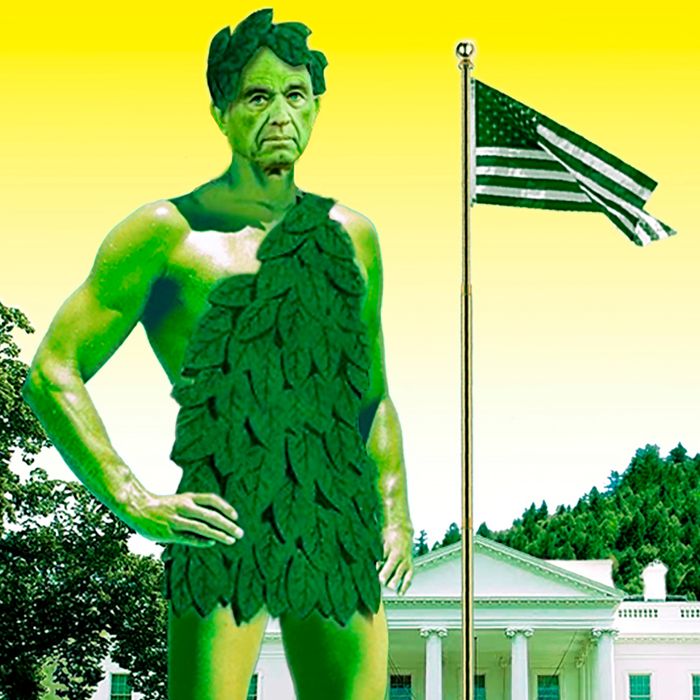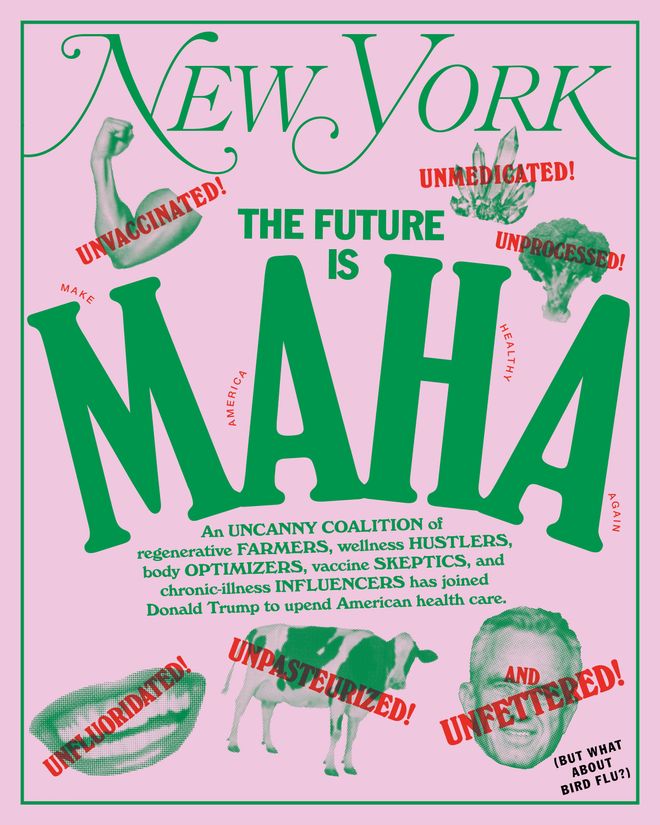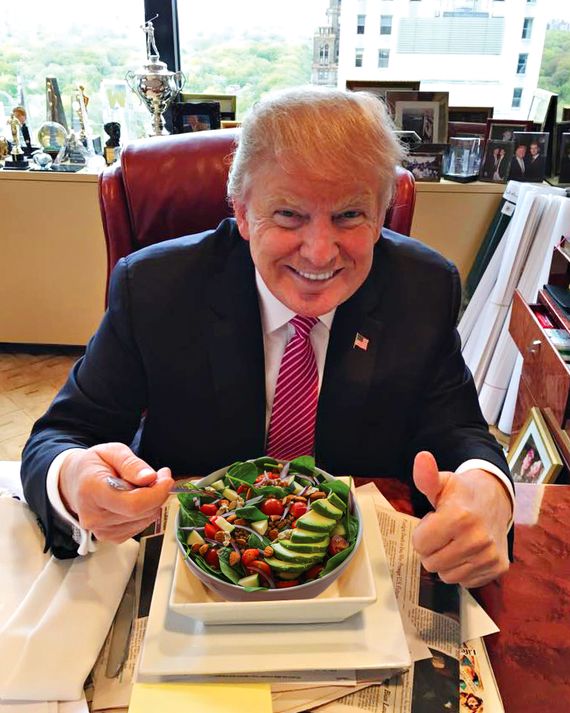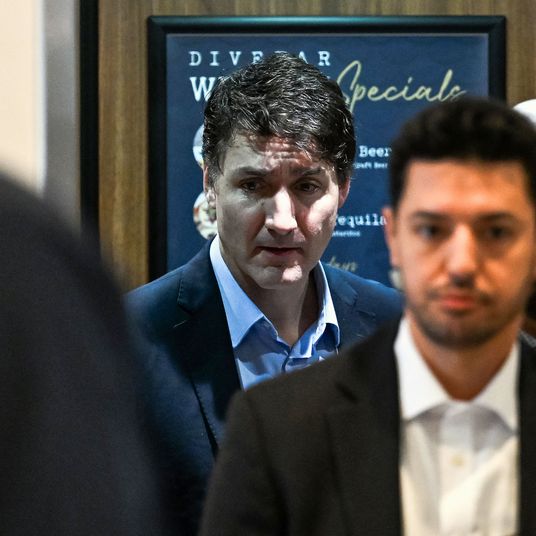
Stripping fluoride from drinking water, ending milk pasteurization, and undermining our vaccination regimen is an ominous to-do list for a country that has recently emerged from the worst pandemic in a century. But RFK Jr. won’t be able to shake up the $1.7 trillion Health and Human Services Department by decree. HHS officials who served in the first Trump administration describe the department as a maze of red tape where buy-in from agencies across the government is required to push through any changes. “When we were there, we got stuff thrown back at us to say, ‘That’s not good enough’” because it didn’t meet the president’s objectives, says Paul Mango, the deputy chief of staff at HHS under Trump.
Even basic policy changes required input from other executive departments like the National Economic Council and the Office of Budget and Management. “It’s not quite as loose as you would imagine,” Mango adds.
In This Issue
Many of RFK Jr.’s ideas actually fall under the purview of other agencies. Any long-term reform to limit fluoride in drinking water is up to the Environmental Protection Agency. Authority over pesticide use and subsidies for seed-oil producers will belong to Trump’s Department of Agriculture pick, Brooke Rollins, who may not want to alienate powerful interests in the heartland. (One can only ponder how the executive branch could enforce an order to “make frying oil tallow again,” another RFK Jr. bromide.) Coordinating all this interagency activity might be a heavy lift for a politician who ended his campaign in debt. “He’s an inspirational leader who’s able to communicate, but he’s not a manager,” Jeff Hutt, a spokesperson for the official MAHA PAC, told Politico.
With HHS expected to hemorrhage staffers, RFK Jr. also may not have the bureaucratic clout to pull off big reforms. “The primary barrier to changing something like food ingredients right now is a lack of resources, and I don’t see the next year or two as being a golden age for hiring lots of new scientists at the FDA,” says a former HHS official under Trump. Still, RFK Jr. could cause some immediate havoc at HHS by firing researchers who don’t enjoy federal protections and shifting priorities at the National Institutes of Health, the agency that oversees vaccine research and funds pandemic prevention. The week after the election, he vowed to replace 600 NIH staffers on day one. He has called plans to test for bird flu “another nightmare of authoritarian control,” just as the current H5N1 virus strain may be one mutation away from human-to-human transmission. RJK Jr. appears to be filling his ranks with true believers: The lawyer vetting HHS officials has filed a petition for the federal government to repeal its approval of the polio vaccine.
The biggest questions of RFK Jr.’s time at HHS will be answered by Trump. Just how much does the president-elect care about any of this? He did attempt to repeal Obamacare, but otherwise HHS was not a top priority in his first term before the pandemic. However, Trump harbored some kooky health ideas even before growing close to RFK Jr.: See his endorsement of ivermectin and hydroxychloroquine. On a phone call with RFK Jr. in June, Trump went off on the (debunked) dangers of vaccines in children, saying that “you see the baby all of a sudden starting to change radically.” Neither RFK Jr. nor the Trump transition team responded to a request for comment on RFK Jr.’s goals within the incoming administration.
And while Trump did not express much interest in health-care reform during the campaign, House Republicans under Speaker Mike Johnson are drooling at the chance to make “massive” cuts to federal health-care spending — an important reminder that, for all of RFK Jr.’s obsession with beef tallow, the most important day-to-day programs HHS oversees are Medicare and Medicaid. At least he does not sound openly hostile to the programs that provide health care to 148 million Americans; so far, he has focused on reform for doctors to prioritize primary care and prevention while arguing for dental to be added to Medicare.
For better or worse, the HHS is probably going to be RFK Jr.’s show. “One thing I learned about President Trump is he’s a great leader in the sense that he sets broad guidelines and delegates authority,” says Mango. “I think he trusts the individuals whom he’s putting in those roles to align with his agenda.” As Trump put it in his victory speech in November, “He wants to do some things, and we’re going to let him go to it … Go have a good time, Bobby.”
Marty Makary, Food and Drug Administration commissioner
Trump nominated Makary, a top surgical oncologist at Johns Hopkins, to “course-correct” an agency RFK Jr. has criticized for being a revolving door to big pharma. A frequent guest on Fox News, Makary opposed widespread vaccine mandates but endorsed universal masking and vaccinations for health-care workers during the pandemic.
Jim O’Neill, Health and Human Services deputy secretary
O’Neill served for years as the head of Peter Thiel’s personal foundation and as the CEO of an anti-aging research nonprofit — a pet issue of the Silicon Valley billionaire’s.
Mehmet Oz, Centers for Medicare and Medicaid Services administrator
The television doctor and failed Senate candidate had been an informal adviser to Trump during the pandemic after going on Fox News to promote hydroxychloroquine as a COVID treatment. Oz, whose show has allegedly made more than $50 million from his endorsements of a supplement company accused of being a pyramid scheme, is expected to help oversee the health care of the oldest and neediest Americans.
Janette Nesheiwat, U.S. surgeon general
Nesheiwat spent much of her career as a CityMD urgent-care provider before becoming a Fox News contributor at the beginning of the pandemic and later a supplement seller. She has cited her accidental shooting and killing of her father as her motivation for becoming a doctor.
Dave Weldon, Centers for Disease Control and Prevention director
Weldon, a former congressman who practices medicine in eastern Florida, has a decadeslong relationship with RFK Jr. and once claimed that the measles vaccine causes autism.
Jay Bhattacharya, National Institutes of Health director
Bhattacharya argued for herd immunity before the development of a vaccine and predicted that only 40,000 Americans would die from COVID. The toll is 1.2 million and counting.
Photo (heads): Getty Images






































